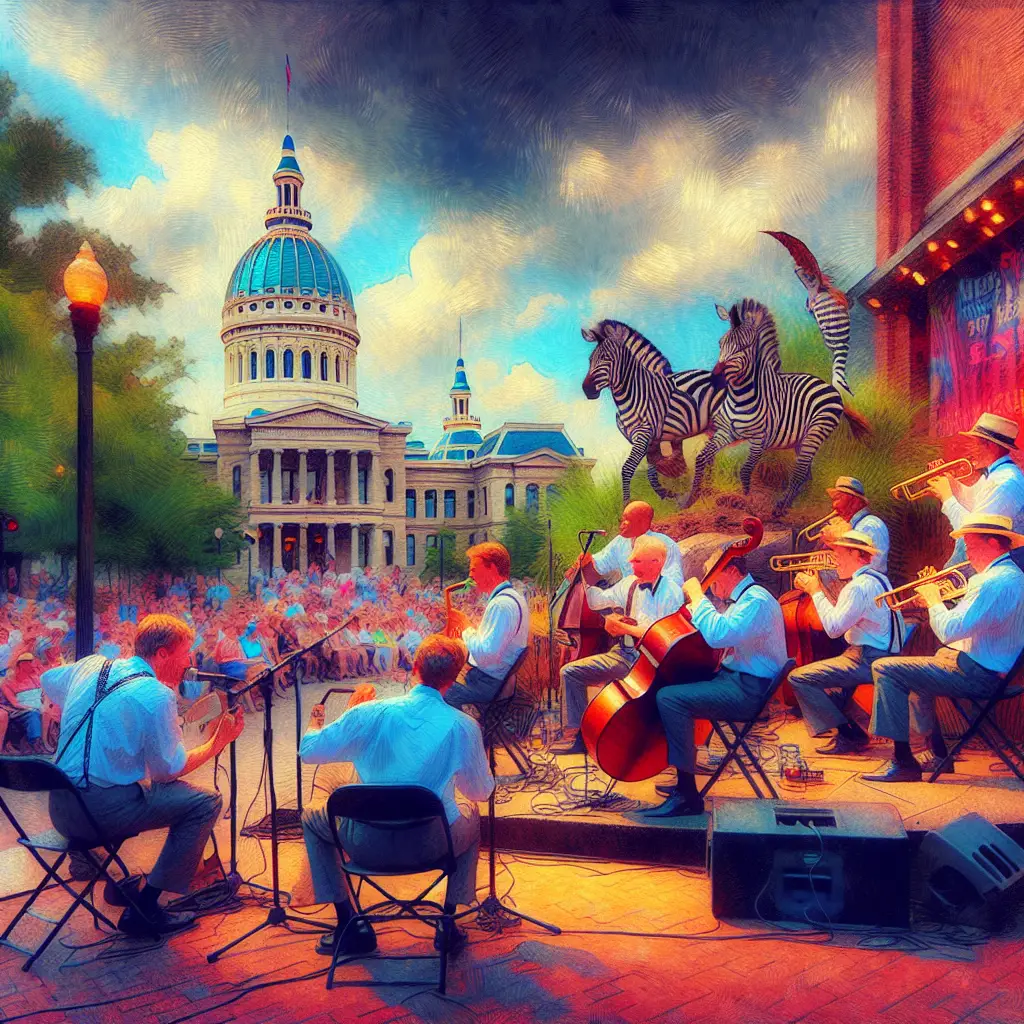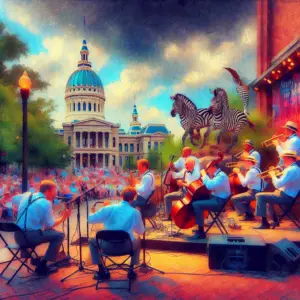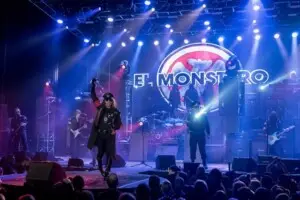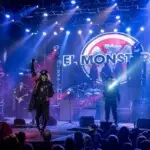Top Venues To Experience Live Local Music In St. Louis
St. Louis, Missouri, is a city steeped in musical history, with a vibrant live music scene that continues to thrive today. Known as the Gateway to the West, St. Louis has long been a cultural crossroads, and its music venues reflect this rich heritage. From intimate clubs to historic theaters, the city offers a diverse array of spaces where local talent and touring acts come together to create unforgettable experiences. For those seeking to immerse themselves in the local music scene, St. Louis boasts a variety of top-tier venues that cater to a wide range of musical tastes.
One of the most iconic venues in the city is The Pageant, located in the Delmar Loop neighborhood. Renowned for its exceptional acoustics and intimate atmosphere, The Pageant has become a cornerstone of the St. Louis music scene. While it regularly hosts nationally recognized artists, it also provides a platform for local musicians to showcase their talents. The venue’s thoughtful design ensures that every seat offers a great view of the stage, making it a favorite among both performers and audiences. Its proximity to other cultural attractions in the Loop further enhances its appeal, offering visitors a chance to explore the area before or after a show.
For those who prefer a more historic setting, the Sheldon Concert Hall is an excellent choice. Often referred to as “The Carnegie Hall of St. Louis,” this venue is celebrated for its impeccable sound quality and elegant architecture. The Sheldon frequently features local artists across genres, from jazz and blues to folk and classical music. Its commitment to supporting the arts extends beyond performances, as it also hosts educational programs and art exhibits. Attending a concert at The Sheldon is not just an auditory experience but a cultural one, as the venue’s ambiance adds a layer of sophistication to any event.
Another standout venue is Off Broadway, a smaller, more intimate space located in the Benton Park neighborhood. Known for its laid-back vibe and eclectic lineup, Off Broadway is a haven for fans of indie, folk, and Americana music. The venue’s unpretentious atmosphere allows for a close connection between artists and audiences, creating a sense of community that is often hard to find in larger spaces. Local musicians frequently grace its stage, making it an ideal spot to discover emerging talent. Its location in a vibrant neighborhood also means that visitors can enjoy nearby restaurants and bars, rounding out their evening with a taste of St. Louis hospitality.
For a truly unique experience, BB’s Jazz, Blues, and Soups offers a blend of live music and Southern-inspired cuisine. Situated in a historic building near downtown, this venue is a testament to St. Louis’s deep ties to jazz and blues. The intimate setting, combined with a menu of hearty dishes, creates an atmosphere that feels both nostalgic and welcoming. Local blues artists are a staple here, and the venue’s commitment to preserving the city’s musical traditions is evident in every performance.
Finally, no discussion of St. Louis music venues would be complete without mentioning Blueberry Hill. This legendary spot, also located in the Delmar Loop, is as much a museum of pop culture as it is a music venue. Its Duck Room, famously associated with rock ‘n’ roll pioneer Chuck Berry, continues to host local and regional acts across genres. The venue’s quirky decor and storied history make it a must-visit for music enthusiasts.
In St. Louis, the live local music scene is as dynamic as the city itself. These venues, each with its own unique character, provide the perfect backdrop for experiencing the talent and creativity that define the region’s musical landscape. Whether you’re a lifelong resident or a first-time visitor, exploring these spaces offers a deeper appreciation for the city’s cultural heartbeat.
Rising Local Bands And Artists Shaping St. Louis’ Music Scene
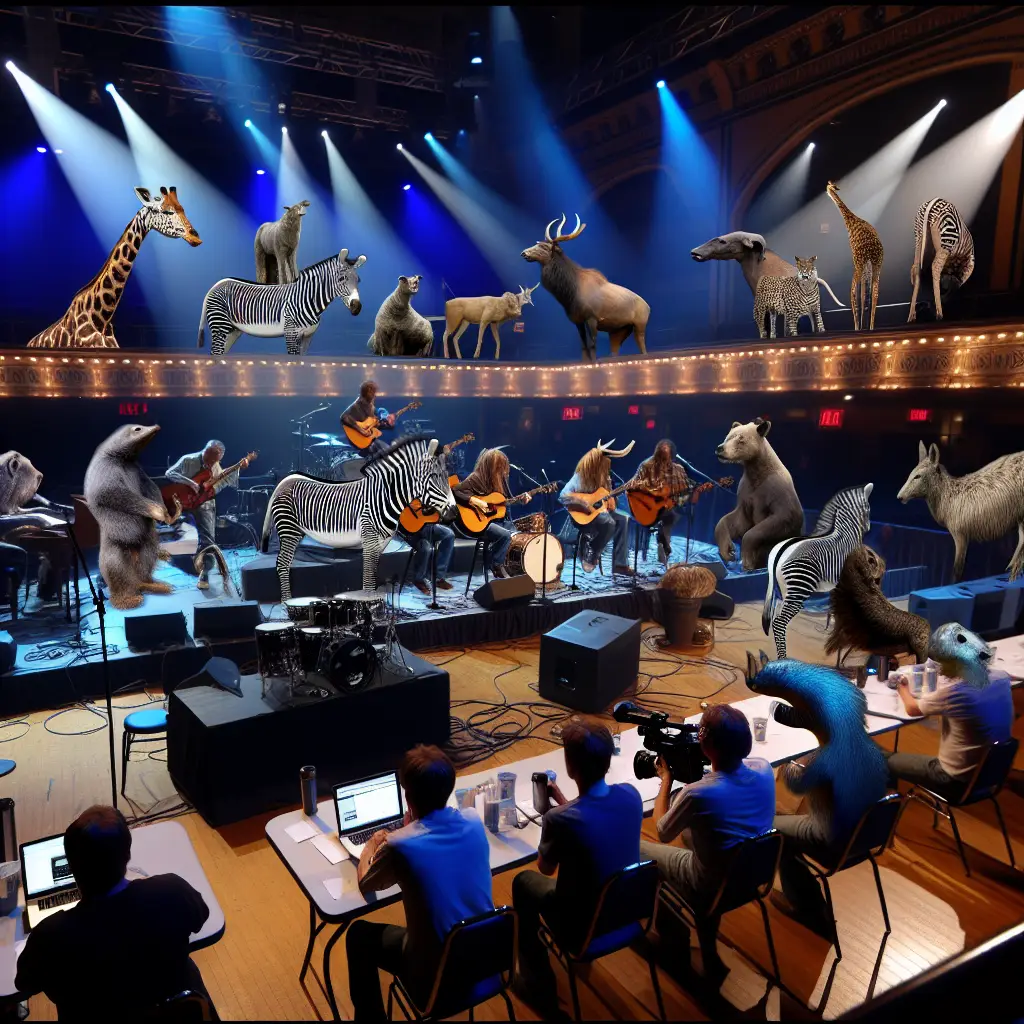
St. Louis, Missouri, has long been a city with a rich musical heritage, known for its contributions to jazz, blues, and rock ‘n’ roll. Today, the city’s live music scene continues to thrive, thanks in large part to a new generation of rising local bands and artists who are shaping its evolving soundscape. These musicians are not only preserving the city’s storied musical traditions but also infusing them with fresh perspectives and innovative styles, creating a dynamic and diverse cultural landscape that resonates with audiences both locally and beyond.
One of the defining characteristics of St. Louis’ emerging music scene is its eclecticism. Artists from a wide range of genres are finding their voices and gaining recognition, reflecting the city’s diverse population and its openness to experimentation. From indie rock and hip-hop to folk and electronic music, the local talent pool is as varied as it is vibrant. This diversity is evident in the work of bands like Foxing, whose emotionally charged indie rock has garnered national attention, and Smino, a rapper and singer whose genre-blurring sound has made him a standout figure in contemporary hip-hop. These artists, among others, are not only elevating the city’s profile on the national stage but also inspiring a new wave of musicians to follow in their footsteps.
The rise of these local acts can be attributed, in part, to the supportive infrastructure that St. Louis offers its musicians. The city is home to a number of iconic venues, such as The Pageant, Delmar Hall, and Off Broadway, which provide platforms for both established and up-and-coming artists to showcase their talents. Additionally, smaller, more intimate spaces like The Sinkhole and Foam have become incubators for experimental and underground music, fostering a sense of community among artists and fans alike. These venues, combined with the city’s affordable cost of living, make St. Louis an attractive place for musicians to hone their craft and build their careers.
Another factor contributing to the growth of the local music scene is the increasing collaboration between artists. Many of St. Louis’ rising stars are working together across genres, creating unique and innovative sounds that defy traditional categorization. This spirit of collaboration is exemplified by collectives like The FarFetched Collective, which brings together musicians, producers, and visual artists to create multidisciplinary projects that push the boundaries of what local music can be. Such initiatives not only enrich the city’s cultural fabric but also help to break down barriers between different musical communities, fostering a sense of unity and shared purpose.
Moreover, the role of grassroots organizations and local media cannot be overlooked. Groups like the St. Louis Music Initiative and radio stations such as KDHX have been instrumental in promoting local talent and providing resources for artists to succeed. These organizations host events, offer networking opportunities, and amplify the voices of musicians who might otherwise go unheard. Their efforts have been crucial in ensuring that St. Louis remains a fertile ground for artistic innovation and expression.
As St. Louis’ rising bands and artists continue to make their mark, they are not only shaping the city’s music scene but also contributing to its broader cultural identity. By blending tradition with innovation and fostering a spirit of collaboration, these musicians are ensuring that St. Louis remains a vibrant and vital hub for live music. Their work serves as a testament to the power of creativity and community, reminding us all of the enduring importance of local music in enriching our lives and connecting us to one another.
The History And Evolution Of St. Louis’ Live Music Culture
St. Louis, Missouri, boasts a rich and storied history in the realm of live music, a legacy that has evolved over decades to shape the city’s cultural identity. Known as the Gateway to the West, St. Louis has long served as a crossroads for diverse musical traditions, blending influences from across the country to create a vibrant and dynamic live music scene. From its early roots in blues and jazz to its modern-day embrace of a wide array of genres, the city’s live music culture reflects both its historical significance and its ongoing commitment to artistic expression.
The origins of St. Louis’ live music scene can be traced back to the late 19th and early 20th centuries, a period when the city emerged as a hub for African American musicians migrating from the South. The Mississippi River, a vital artery of commerce and culture, brought with it the sounds of the Delta blues, which found fertile ground in St. Louis’ thriving neighborhoods. Musicians such as W.C. Handy, often referred to as the “Father of the Blues,” helped popularize the genre, while local artists like Henry Townsend and Peetie Wheatstraw contributed to its development. The city’s blues tradition laid the foundation for a burgeoning live music culture, with venues such as the legendary Beale on Broadway providing a stage for performers to share their craft.
As the 20th century progressed, St. Louis became a key player in the evolution of jazz, a genre that would further cement the city’s reputation as a musical powerhouse. The arrival of artists like Miles Davis, who was born in nearby Alton, Illinois, and honed his skills in St. Louis, brought national attention to the city’s jazz scene. Clubs such as the Peacock Alley and the Gaslight Square district became epicenters of live performances, attracting both local talent and touring musicians. The improvisational spirit of jazz resonated deeply with audiences, fostering a sense of community and creativity that continues to influence the city’s music culture today.
In addition to blues and jazz, St. Louis has also played a significant role in the development of other genres, including rock and roll, soul, and rhythm and blues. Chuck Berry, a native of St. Louis, is widely regarded as one of the pioneers of rock and roll, blending elements of blues and country music to create a sound that would revolutionize popular music. His performances at venues like the Cosmopolitan Club not only electrified audiences but also inspired generations of musicians to follow in his footsteps. Similarly, the city’s contributions to soul and R&B, exemplified by artists such as Fontella Bass and Ike and Tina Turner, further enriched its live music heritage.
Today, St. Louis’ live music scene continues to thrive, with a diverse array of venues and events that cater to a wide range of tastes. From the historic Sheldon Concert Hall to the contemporary Delmar Hall, the city offers spaces that celebrate both its musical past and its vibrant present. Festivals such as the Big Muddy Blues Festival and LouFest have also played a pivotal role in showcasing local talent while drawing visitors from across the country. This enduring commitment to live music underscores the city’s role as a cultural beacon, where the echoes of its storied history harmonize with the sounds of its ever-evolving future. Through its dedication to preserving and expanding its musical legacy, St. Louis remains a vital and dynamic force in the world of live music.

